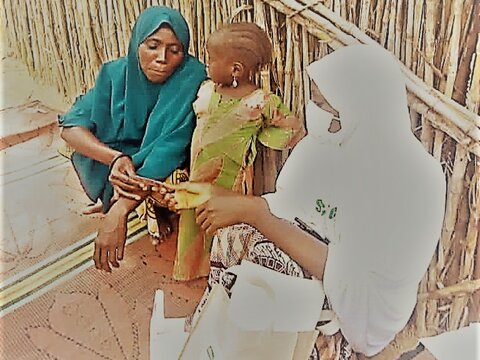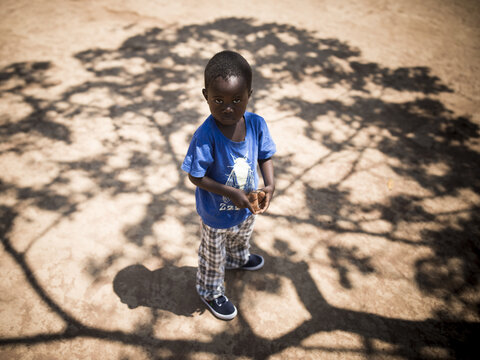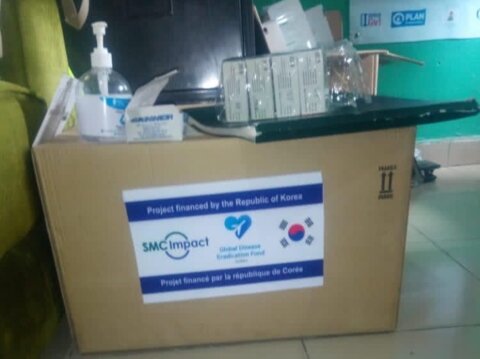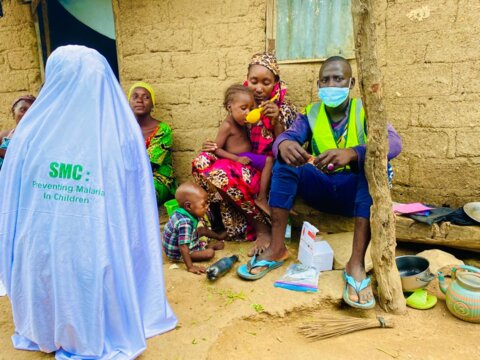SMC Impact project in Nigeria
Introduction

Malaria Consortium supports the implementation of SMC in 11 of the 21 SMC eligible states. SMC is implemented in collaboration with Nigeria’s National Malaria Elimination Programme (NMEP), National Primary Health Care Development Agency (NPHCDA), Bauchi State Agency for Control of HIV-AIDS, Tuberculosis and Malaria (BACATMA), and the State Primary Health Care Development Agency (SPHCDA).
Through the SMC Impact project, KOICA funding is used to deliver SMC in two local government areas (LGAs) in Bauchi State, Northeast Nigeria: Ningi and Tafawa Balewa. Following a stratification exercise conducted in 2020 by the NMEP through the High Burden to High Impact initiative, all 20 LGAs in the state were considered eligible for SMC. However, only 10 LGAs of the state’s 20 LGAs benefitted from the intervention in 2020. KOICA funding contributed towards closing the coverage gap in 2021. This year, children in all 20 LGAs will be protected by this life-saving intervention, including approximately 265,000 children in the two LGAs supported through the SMC Impact project.
Preparation for the annual SMC cycles

A microplanning exercise involving all partners was undertaken in March across the two KOICA-supported LGAs. Training of SMC personnel commenced in June. In total 2,909 personnel were trained: 10 LGA level supervisors; 375 health facility workers and supervisors; 2,026 community distributors, 249 town announcers and 249 lead mothers. All SMC commodities, including 1,059,531 blister packs of SMC medicines procured for use in Ningi and Tafawa Balewa, were transported to the health facilities that coordinate SMC distribution ahead of the start of the 2021 SMC round.
An advocacy visit led by the NMEP with Malaria Consortium, Bauchi State Ministry of Health (SMoH) and State Malaria Elimination Programme (SMEP) level personnel was made to authorities at the LGA level. This was followed up with SMEP led community engagement meetings with traditional and religious leaders to discuss SMC and the planned activities.
SPAQ Administration

Community distribution of SMC in the KOICA-supported LGAs started in mid-July. So far, three monthly SMC distribution cycles have been implemented. Administrative data collected by community distributors suggest that coverage was high. Due to the COVID-19 pandemic, SMC implementers adhered to strict infection prevention and control measures, for example by wearing face masks and regularly using hand sanitizer. To encourage physical distancing, community distributors did not administer the SPAQ to the children directly but instead observed caregivers administering the medicines on day 1. Lead mothers followed up with caregivers on days 2 and 3 to ensure children received the full three-day course of antimalarial medicines, which confers maximum protection. One further monthly distribution cycle was conducted in October.
Monitoring and Evaluation

Following each monthly SMC distribution cycle, household surveys are conducted to identify areas that do not meet certain quality standards. Results of the surveys conducted in the two LGAs of Ningi and Tafawa Balewa confirmed that high coverage was achieved. In cycle 1, 79.5 per cent of eligible children were reached. In cycle 2, coverage was 83.5 per cent.